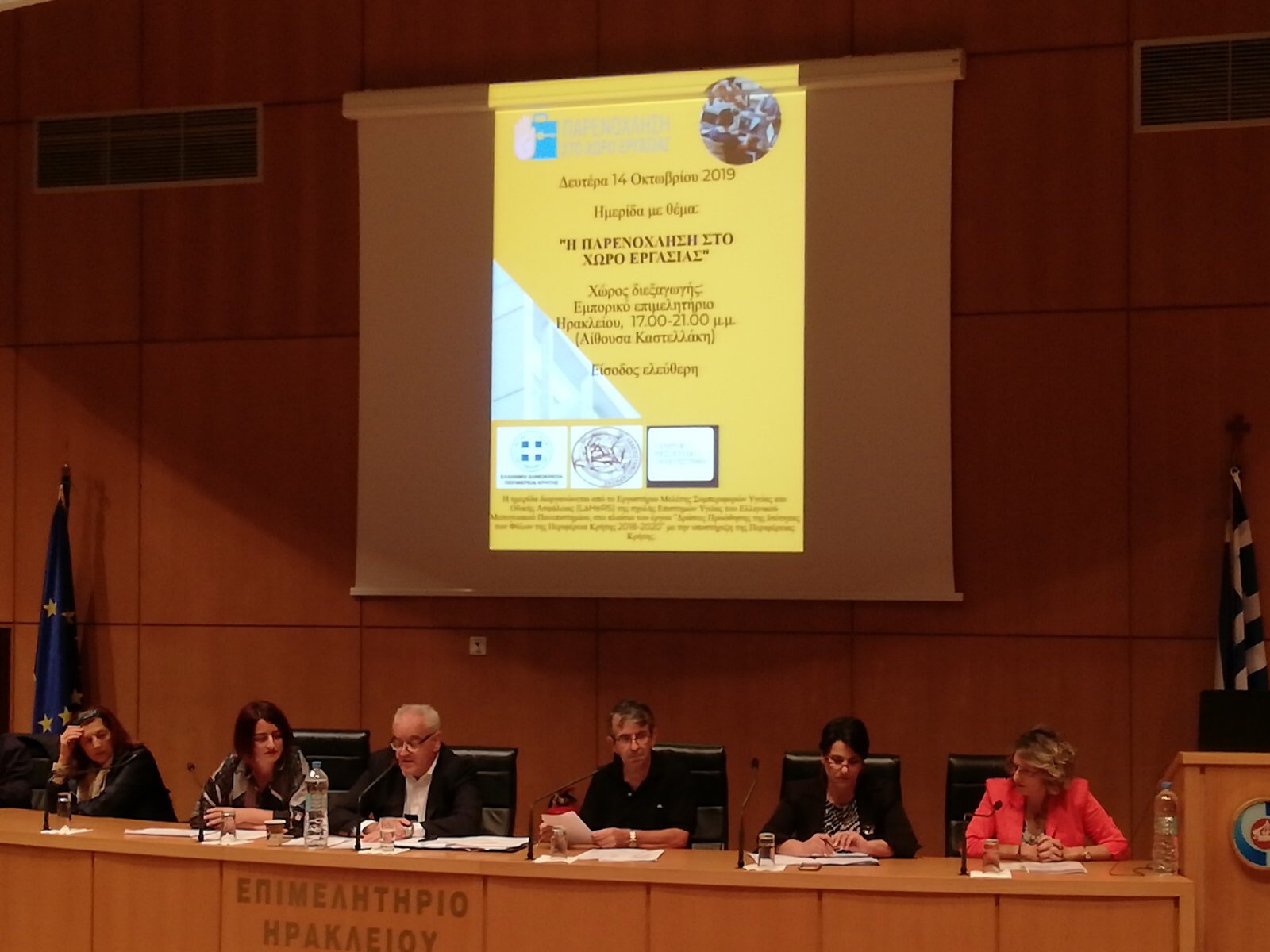Empirical data announced at the Conference of the Region of Crete for "Harassment at the Workplace"
The Region of Crete has successfully organized the conference entitled, "Harassment at the Workplace" within the framework of the programme "Actions to Promote Gender Equality in the Region of Crete 2018 - 2020" in cooporation with the University of Crete and the Greek Mediterranean University. The conference was held at the Chamber of Heraklion with the participation of representatives of Academic institutions, social services-institutions.
In particular, the Deputy Regional Governor of Public Health and Social Policy, Lambros Vamvakas, in his speech, referred to the planning of the Region of Crete in terms of promoting gender equality in Crete, the initiatives and actions undertaken under the program contract. Also in the actions related to the measures for the strengthening of the role of women in the local communities, for the promotion of women in the public life, the fight against multiple discrimination and interventions for the removal of the stereotypes through education.
According to the Assistant Professor of the Hellenic Mediterranean University, Maria Papadakaki, who presented the data of the research on harassment at work in Crete, the most vulnerable to harassment at work in Crete are the youngest, the free or divorced and the graduates of technical schools , part-time employees, short-term employees and flexible working hours.
For its part, Vasiliki Petousi, Professor at the Department of Sociology in the University of Crete, referred to the gender dimensions of harassment, as well as that women are more harassed in the workplace, especially in the current precarious work environment.
According to the survey data in percentage for employees, the following data were found:
Psychological / moral harassment
behave rudely (41.0%)
humiliate them in front of others (21.0%)
they are told immoral or derogatory things (17.8%)
ask them to do useless or degrading work (35.7%)
do not allow them to enjoy their legal rights as employees (eg leave) (36.9%)
charge them with excessive work that they can not easily manage (44.2%)
Physical / sexual harassment
threaten them with physical violence to do things (4.8%)
Sexually explicit conversations begin (16.2%)
They report high discomfort in working conditions:
I do not like my work (51.0%)
I do not participate in decisions that affect my work (53.0%)
My ideas or suggestions are not taken into account (54.1%)
They systematically monitor my performance in my workplace (65.8%)
My work environment is not pleasant (eg noisy, dirty, unhealthy) (42.8%)
Relations with my colleagues are not good (36.9%)
My pay is not as good as that of others who do the same or similar work as mine (59.9%)
I work longer hours than I originally agreed (51.7%)
I'm not sure what my employer expects of me (45.9%)
Others get rewarded for what I do (38.6%)
The main concerns that developed at the closing of the evening concerned the following:
Difficulty for employees to report the incident
Need for reporting mechanisms to ensure anonymity
-Free legal support in case of harassment
-Information on the actions to be taken in case of harassment
-Informing employers about the benefits of having measures to prevent harassment and deal with cases early.


